by Sultan Al-Khulaifi
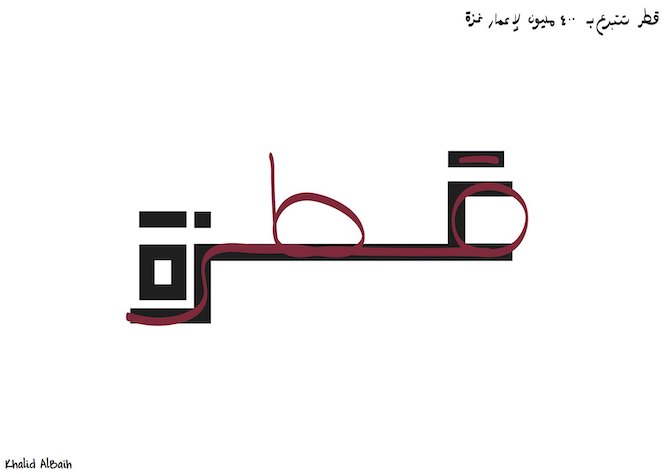
The rule of Hamas in Gaza and its role in the Palestinian arena represents a dilemma for the Arab states. On the one hand, it is seen as legitimate actor among Palestinian factions and by the Arab masses and on other hand, it is considered a terrorist organisation by the US, EU and other actors. Qatar’s relationship with Hamas has been subjected to misinformation and mis-categorisation that connects Qatar to the axis of resistance comprised of Iran, Syria and its proxies and accuses Qatar of supporting terrorism financially. Yet, the latter would put Qatar undoubtedly under the sanctions of the US Treasury. Thus, it is important to ask: What role Qatar plays in Gaza and what are the parameters of its relationship with Hamas?
Qatar’s expanded role in the Israeli-Palestinian conflict came after Hamas won the 2006 Palestinian legislative elections. This victory surprised the Bush Administration which pushed Fatah to run in the elections, whilst Qatar reportedly encouraged Hamas upon an American request to participate the elections. Following the victory, Hamas was shunned and its government was not recognised internationally unless it accepted the Quartet conditions. Qatar tried to mediate between Hamas and Fatah in 2006 but failed due to the extreme difference in positions between the two parties.
After Hamas took over the strip in 2007, Israel imposed a blockade on Gaza and cut it off from any connection with the outside world – rendering it an open air prison. The blockade was intended to overthrow Hamas’s rule, but it was not successful. And with Hamas’s inability to provide services for the people of Gaza, tensions rose with Israel. The latter launched Operation Cast Lead which massacred Gazans but failed to destroy Hamas. Qatar called for an end to the blockade and tried to rally the Arab league to present a unified Arab position to the international community, but Arab divisions were too great to be bridged. At the same time, Qatar closed the Israeli trade office which was a symbol of normalisation during the peace process in the nineties.
Nonetheless, Qatar tried to support the humanitarian situation in Gaza following the war in 2009. It offered to reopen the Israeli trade office in exchange for Israel allowing Qatari aid to flow to Gaza to rebuild the Gaza Strip, an offer rejected by Israel. Following the Arab Spring and the new political order in Egypt, the Emir of Qatar visited in Gaza in 2012 with the aim of breaking the blockade of Gaza. In the visit, he offered a 400 million $ grant to rebuild Gaza. To provide a transparent mechanism for the flow of aid to Gaza, Qatar coordinates with UN organisations on the ground to facilitate the dispatching of aid to the people of Gaza.
Qatar treats Hamas as a reality on the ground that cannot be circumvented. Qatar has notified US officials that they do not support Hamas but has called for engagement between Hamas and Fatah. Qatar’s official position is aligned with the Arab initiative that calls for a two-state solution. Former British Prime Minister and Quartet Envoy has said, that world powers were wrong to boycott Hamas after its electoral win in 2006.
Following Israel’s understanding that it cannot get rid of Hamas and that it was necessary to maintain calm between the two sides, Israel began to rely on Qatari aid to calm the situation in Gaza. Qatar’s aim is to provide humanitarian support and offer hope for the besieged people of Gaza. In the absence of any actor willing to bear the costs of supporting Gaza, Qatar appeared to be in the position to assume the role of aid provider and mediator in the relations between Hamas and Israel. Its hosting of the Hamas political office in 2012 after the movement left its offices in Gaza, was a calculated move to provide a venue for mediation and dialogue in Doha between Hamas officials and foreign dignitaries. This culminated in a newly developed and much moderate Hamas declaration in 2017 that opened the door for Hama’s acceptance of a two-state solution, even on a temporary basis.
Qatar’s relationship with Hamas is based on three foundations. First, Qatar’s support for the Palestinian cause and the objective of reaching a two-state solution that ends the injustices faced by the Palestinian people. Second, Qatar’s role as a mediator, which gives it the space to speak to different actors in the region, regardless of their positions to facilitate dialogue and preserve the stability of the regional order. Third, the humanitarian catastrophe faced by the people of Gaza, which prompts Qatar to play a leading role in ending it. These 3 foundations explain Qatar’s actions towards Gaza and in its dealings with Hamas, and therefore refute any connection between Qatar and the funding of terrorism and puts Qatar’s policy in perspective.
[To read more on this and everything Middle East, the LSE Middle East Centre Library is now open for browsing and borrowing for LSE students and staff. For more information, please visit the MEC Library page.]



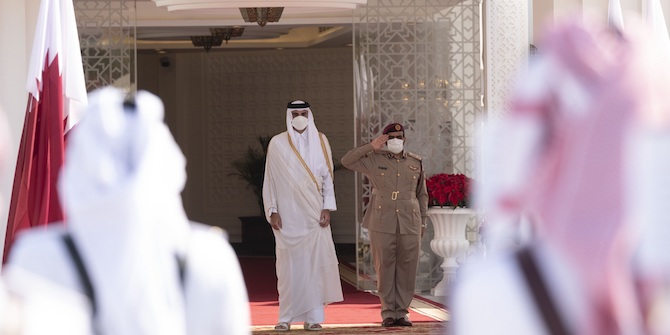
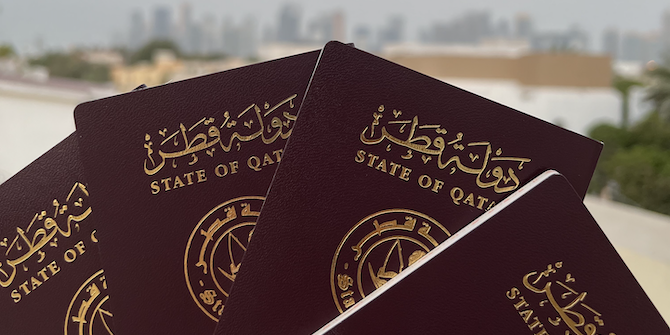
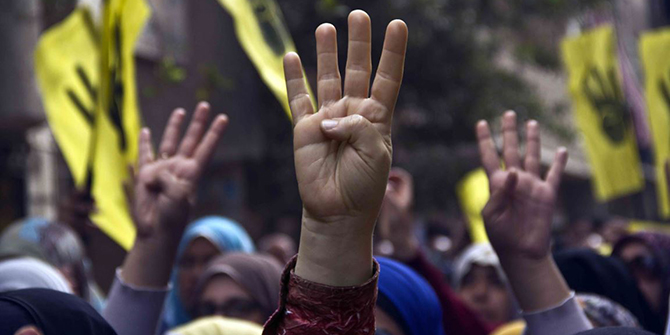
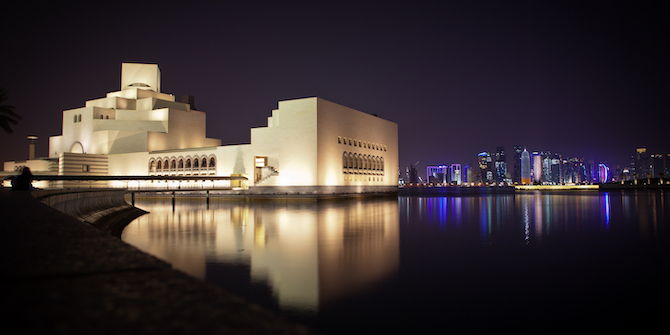
5 Comments